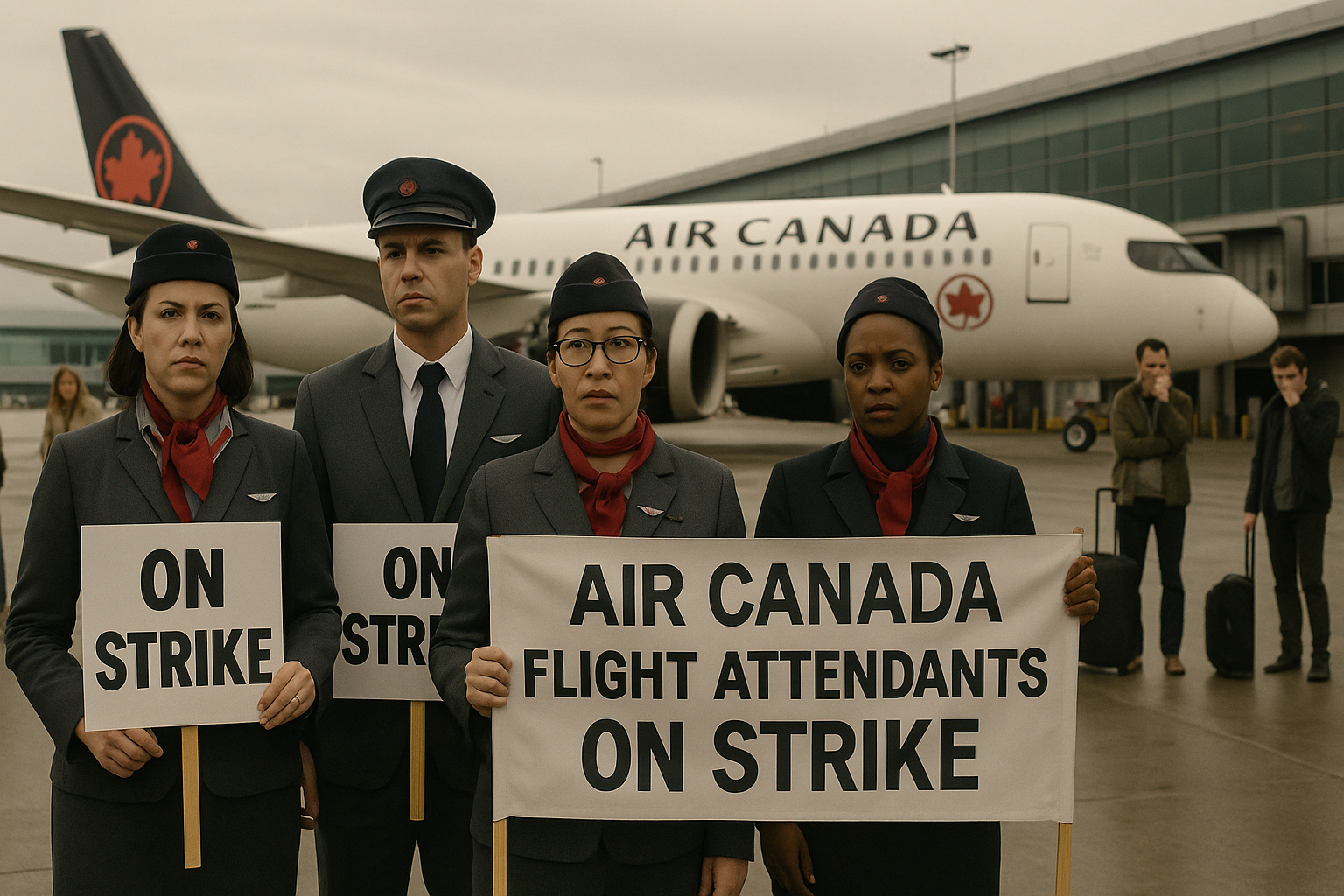The airline industry is having another one of its moments. Air Canada's flight attendants staged a walkout this weekend that's left the carrier scrambling to salvage both its operations and its financial outlook.
Let me paint you the picture: 10,000 cabin crew members hit the picket lines Saturday over the usual suspects—pay disputes and scheduling nightmares. The Canadian government, clearly irritated by the whole affair, quickly stepped in with binding arbitration orders, essentially saying, "Get back to work, folks."
But here's where it gets interesting. The union basically shrugged and continued striking anyway.
I've covered labor disputes for years, and this one has a particularly spicy flavor—defying a government back-to-work order isn't exactly your everyday labor tactic. It's bold. Maybe reckless. Definitely consequential.
Air Canada has now suspended its financial guidance entirely. Not revised it downward, mind you. Suspended it. That's corporate-speak for "we have absolutely no idea how bad this is going to get." Never a comforting message for investors who, you know, prefer companies to have at least some clue about their financial future.
(The timing couldn't be worse, by the way. Summer travel season is the airline equivalent of Christmas for retailers—those precious weeks when they actually make decent money.)
The fallout is already massive. Something like 500,000 passengers have had their travel plans upended. Hundreds of flights canceled. The airline's reputation taking yet another hit in an industry where customer loyalty is already hanging by the thinnest of threads.
Look, airlines operate in this bizarre intersection of private enterprise and public infrastructure. They're expected to run profitable businesses while also serving as essential services. They answer to shareholders but depend on unionized workforces. Talk about competing interests.
What makes airline strikes particularly nasty compared to other industries?
For one thing, there's no inventory buffer. When a factory stops production, at least they might have some product stockpiled. When an airline stops flying... that's it. Those empty seats flying through the sky represent revenue that's gone forever.
The financial damage compounds quickly. It's not just the lost ticket sales—it's the hotel vouchers, the rebookings, the overtime for the staff who aren't striking, the inevitable compensation claims.
I spoke with several industry analysts yesterday who suggested this could wipe out much of Air Canada's projected Q3 profit. One called it "a financial wound that will take multiple quarters to heal."
The labor dynamic here isn't unique to Air Canada, though. Airlines across North America have faced increasing pressure from workers who feel they carried these companies through the pandemic only to be left behind during the recovery. Remember when air travel came roaring back last year and airlines weren't staffed properly? That wasn't an accident—it was the result of pandemic-era cuts that went too deep.
And now the chickens have come home to roost. (Or perhaps they've refused to board the aircraft?)
Air Canada's management is calling the continued strike "unlawful," which is technically correct but practically irrelevant if workers simply refuse to show up. You can't force people onto aircraft with legal declarations.
For investors, this is a harsh reminder of Warren Buffett's famous quip about how a far-sighted capitalist at Kitty Hawk would've done future investors a favor by shooting Orville Wright out of the sky. Buffett himself famously reversed course on his airline investments during the pandemic after decades of avoiding the sector.
Can Air Canada weather this storm? Probably. Airlines have a remarkable resilience—they've survived terrorism, pandemics, oil price shocks, and countless labor disputes.
But the immediate pain is real. And for those 500,000 stranded passengers? They're getting an expensive education about what "non-refundable" really means in practice.
Sometimes in the airline business, the only thing that flies smoothly are the excuses.
